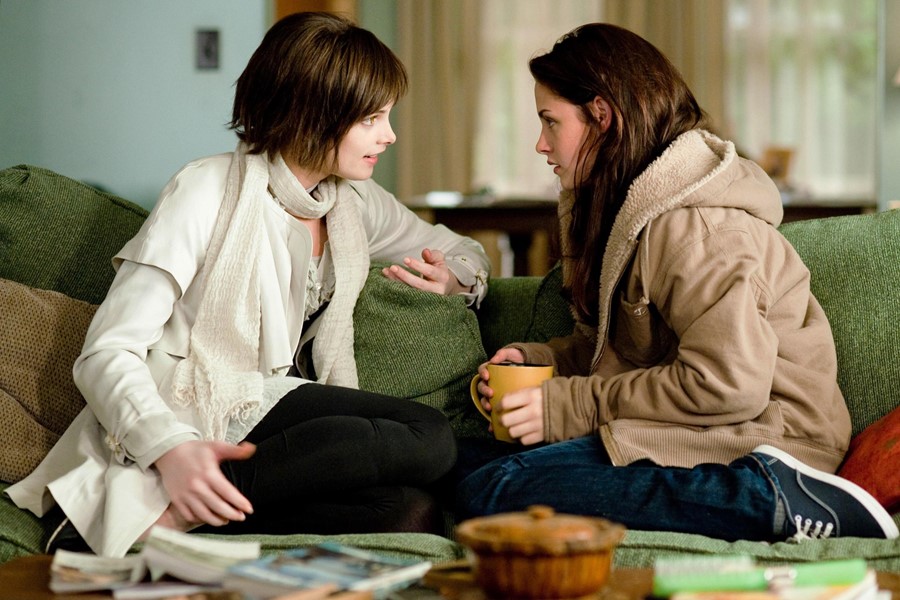In a new interview, the actor opens up about her journey with her sexuality, and shares her ‘very gay’ thoughts on Twilight
No actor owes us insight into their sexuality and it’s understandable when they choose not to share that story with the world, since, when they do, it generates a million headlines (like this one) and every stranger on the internet has an opinion about it (like me). But what a gift it is when people in the public eye do feel comfortable and open to sharing that part of themselves with us.
In her cover interview with Variety, “How Kristen Stewart Became a Queer Trailblazer”, Kristen Stewart opens up quite candidly about her journey with her sexuality, queerness and gender expression.
She talks about how hard it was to have people speculating about her sexuality and projecting onto her while she was still figuring it out herself – “for so long, I was like, ‘Why are you trying to skewer me? Why are you trying to ruin my life?’... The idea of people going, ‘I knew that you were a little queer kid forever.’ I’m like, ‘Oh, yeah? Well, you should honestly have seen me fuck my first boyfriend.’”
But then after recently re-watching her 2002 film Panic Room, she can see the queerness that others in the community sensed about her. “I was already going like, ‘Don’t fuck with me.’ I was gay.”
She also delves into how she’s discovered a queerness in the Twilight story in the years since filming. “I can only see it now. I don’t think it necessarily started off that way, but I also think that the fact that I was there at all, it was percolating. It’s such a gay movie. I mean, Jesus Christ, Taylor and Rob and me, and it’s so hidden and not OK. I mean, a Mormon woman wrote this book. It’s all about oppression, about wanting what’s going to destroy you. That’s a very Gothic, gay inclination that I love.”
However, it’s what she says about her relationship to her gender expression and the effect it has had on her career that is the most impactful. During the conversation, interviewer Adam B. Vary tells Stewart how great it is that she has been able to come out as queer in Hollywood and not have her career affected by it – like so many others before her. In response, Stewart says that she puts a lot of that down to her ability to perform femininity in a way that is culturally and societally acceptable, and had she presented in a more butch or masculine way, her career would have suffered.
“I have lots of different experiences that shape who I am that are very, very far from binary. But I did get good at the heteronormative quality. I play that role well. It comes from a somewhat real place – it’s not fake. But it’s fucked up that if I was gayer, it wouldn’t be the case,” she says.
That said, in her new queer bodybuilding movie Love Lies Bleeding, she has been able to explore more of that butch side, which seems to be closer to who she really is. Talking about her character, Lou, who is described as being “masculine, scrappy and unmistakably horny”, Stewart says, “there was something about having the things that I have found attractive be really glorified. It was really sexy. And I don’t mean from an outsider’s perspective: I felt turned on by it, and it was cool to have people witness that.”
Looking to the future, Vary says the actor is dedicated to fully embracing who she is as a “bro-y, butchy-y queer woman” in her work and a sense of communion with the LGBTQ+ community.
“I was like, ‘I would like to be on that team because we need each other,’” Stewart says. “I didn’t want to be left out anymore. It was this whole world that I didn’t realise I could explore.”
Stewart doesn’t owe us anything, and the fact that she’s already experienced so much intrusiveness into her personal life makes it even more generous for her to be so open and authentic with the public. In return for what she is giving, is the impact her words will certainly have on young queer people and even those who are a bit older. The possibilities it will open up to people who are seeing a different way of being represented. How much more interesting and varied the world becomes when people are their true selves.
A few years ago, Stewart gave an interview in which she shared the fears she had around coming out when she was younger. “I didn’t want to be called a lesbo. And I didn’t want to be that weird, gross, ‘dykey’ girl,” she said. It was like someone had spoken the words that had always been inside my head, and I go back to them every time those old fears start to creep back in. The comfort of knowing other people feel the same as you, and the absurdity that anyone would ever think Stewart was gross or fall into the pathetic, predatory lesbian trope, helps snap me out of it. I have no doubt this new interview will help someone else, in the same way, with their respective fears and anxieties.




